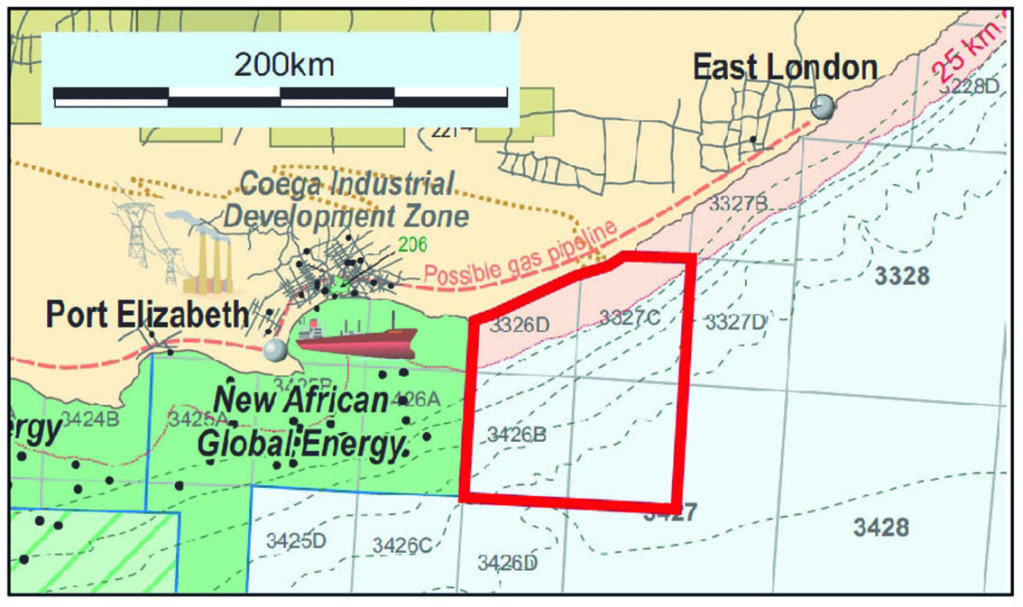Another answer to Africa’s energy shortage could be sitting thousands of meters off the south coast of the continent. Its extraction could cause a row between interested parties.
British company, OK Energy Limited, is on the hunt for potential oil and gas energy (hydrocarbon) reserves in the East Algoa Exploration Area, under the Indian Ocean. The area is off the eastern coast of Port Elizabeth and is 9,314km² and reaches a depth of approximately 4,000m.
OK Energy appointed a South African company, Environmental Resources Management (ERM), to prepare the environmental management program for Petroleum Agency South Africa (PASA) ahead of consideration and approval by the government.
OK Energy submitted two applications to PASA between March and August as per government’s licensing requirements. A decision is expected before the end of the year. If the bid is successful, it will add to the existing exploration of ExxonMobil reserves in South Africa and the Great Rift Valley in Kenya.
The applications included a consultation process. According to ERM reports, community meetings and an environmental program were required. These activities involved the evaluation of the environmental and social setting, identifying potential impacts and developing a plan to reduce them. The company received approval to go ahead with seismic processes in 2014.
Loading...
“For the East Algoa Area, currently there are no outstanding stakeholder issues and the process is likely to lead to PASA granting the exploration right later this year. We would then look at acquiring seismic data, either in conjunction with another operation in 2013, or our own in 2014,” says Paul Barrett, OK Energy’s director and geologist.
“South Africa will benefit from significant tax and royalty revenues—the local area, especially Port Elizabeth’s port, will benefit from a large amount of fabrication and support activity to build and operate any oil field development.”
“The geology of the coastal region suggests that deepwater oil reservoirs may have been deposited. This is totally unproven and ourselves and Impact/ExxonMobil, our neighboring licence holders, are using worldwide analogues to drive our exploration focus. It is a high-risk area in terms of finding hydrocarbons, but if it works it will be significant,” says Barrett.
“The rights to all of South Africa’s oil resources should be given to PetroSA because it’s state-owned. There’s no guarantee that oil will be cheaper because it’s being sourced from our oceans,” says Bobby Peek, director of a non-governmental organization Groundwork.
Peek, an environmentalist, also warns that the seismic activities in the oceans could drive dolphins and whales away.
PetroSA has proposed an amendment bill to Parliament, which significantly widens the scope of state involvement in mineral production, making it the custodian of the state’s allocation for all petroleum rights.
This has led to a backlash from the industry’s interested parties, like ExxonMobil and Anardako, with warnings that the proposed amendments could deter investment in South Africa at a time when prospects for gas and oil discoveries are good.
Loading...
